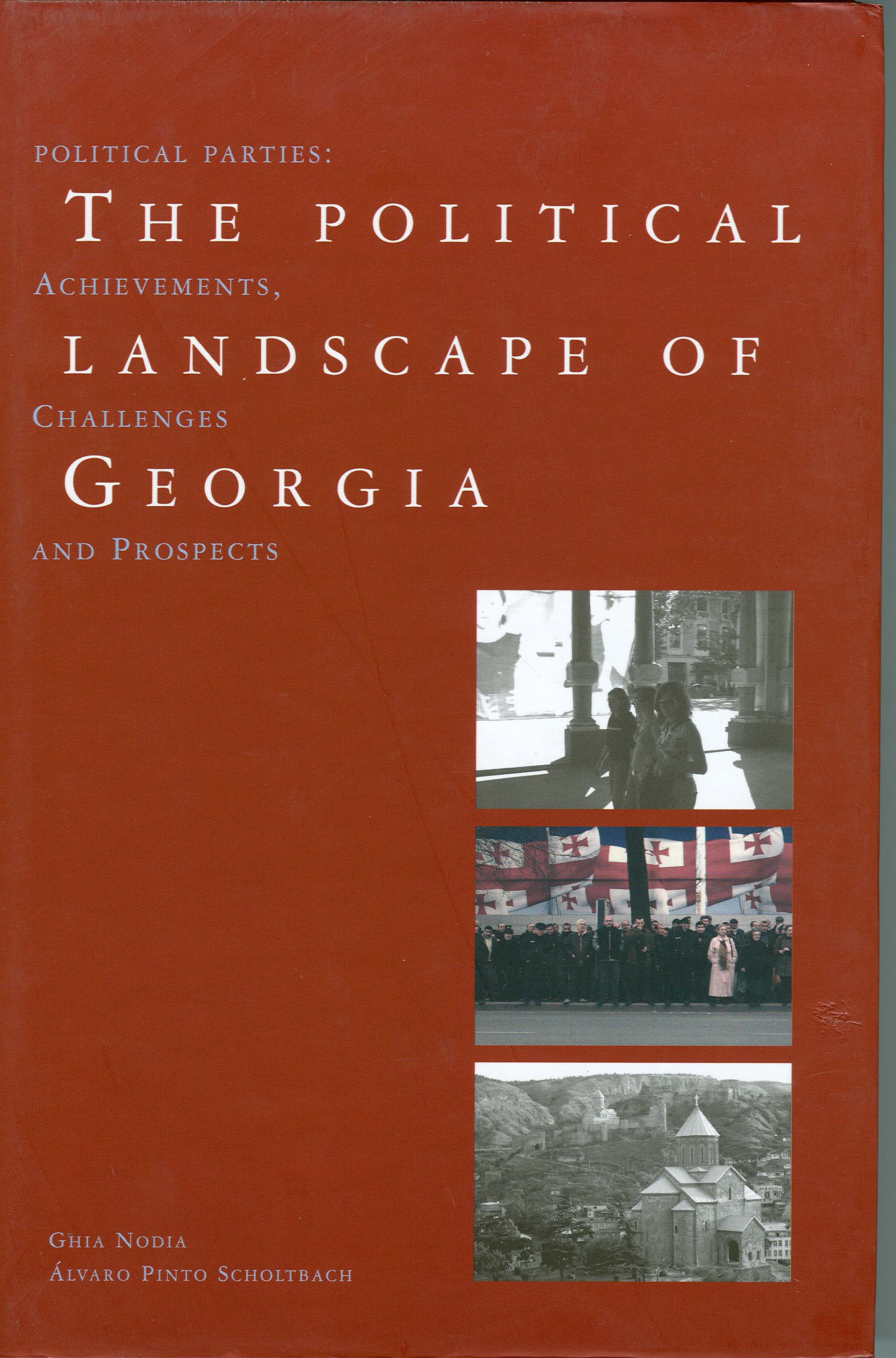The Political Landscape of Georgia
.After August 2008: consequences of the Russian-Georgian war
Date: 2008
Title: After August 2008: consequences of the Russian-Georgian war
Authors: independent experts and analysts of the CIPDD, Caucasus Environmental NGO Network (CENN) and BTKK – Policy Research Group
Donor and project: The paper was published with the financial support of the Think Tank Fund of the Open Society Institute – Budapest.
Languages: English, Georgian სექტემბერი, 2006
. The Political Landscape of Georgia
ავტორები: გია ნოდია (კავკასიური ინსტიტუტი), ალვარო პინტო სქოლტბახი (ნიდერლანდების მრავალპარტიული დემოკრატიის ინსტიტუტი)
პროექტი და დონორი: მშვიდობის, დემოკრატიისა და განვითარების კავკასიური ინსტიტუტის, ნiდერლანდების მრავალპარტიული დემოკრატიის ინსტიტუტისა და ეუთო-ს დემოკრატიული ინსტიტუტებისა და ადამიანის უფლებების ოფისის ერთობლივი პროექტი
გამოცემა მომზადებულია ეუთო-ს დემოკრატიული ინსტიტუტებისა და ადამიანის უფლებების ოფისის მხარდაჭერით
. .
.: 341 (ქართული), 268 (ინგლისური )
© IMD, ODIHR, CIPDD
დაახლოებით ორი ათწლეულია, საქართველო დემოკრატიული პოლიტიკური პარტიული სისტემის განვითარებას ცდილობს. ნაბიჯ-ნაბიჯ მიიღწეოდა წარმატებები და პასუხი გაეცემოდა ახალ-ახალ გამოწვევებს. მაგრამ როგორია სამომავლო პერსპექტივები? როგორია პოლიტიკური პარტიების არსებული სისტემა და როგორ შეიძლება მისი გაუმჯობესება მდგრადი დემოკრატიის მისაღწევად?
The Political Landscape of Georgia Date: September 2006 Title: The Political Landscape of Georgia. Political Parties: Achievements, Challenges and Prospects Author(s): Ghia Nodia (Caucasus Institute for Peace, Democracy and Development) Alvaro Pinto Scholtbach (Netherlands Institute for Multiparty Democracy) Project and donor: CIPDD, Netherlands Institute for Multiparty Democracy and the OSCE Office for Democratic Institutions and Human Rights Funded by The OSCE Office for Democratic Institutions and Human Rights Languages: Georgian, English Pages: 341 (Georgian), 268 (English) © IMD, ODIHR, CIPDD Description: For nearly two decades, Georgia has been struggling to develop its democratic political party system. Step by step, progress has been made and new challenges addressed. But what are the prospects for the future? What is the current situation of the political party system and how can it be improved so that it contributes to a vibrant democracy? Following the initiative of the Office for Democratic Institutions and Human Rights of the Organization for Security and Co-operation in Europe (OSCE/ODIHR), a team of researchers from the Netherlands Institute for Multiparty Democracy (IMD), the Caucasus Institute for Peace, Democracy and Development (CIPDD) carried out an interactive assessment in which Georgian political parties answered these questions for themselves and contributed to filling in the picture that emerges from this book. This research provides a comprehensive analysis of the current situation and its historical background as well as practical recommendations for future improvements. It offers an invaluable insight in Georgian politics.


